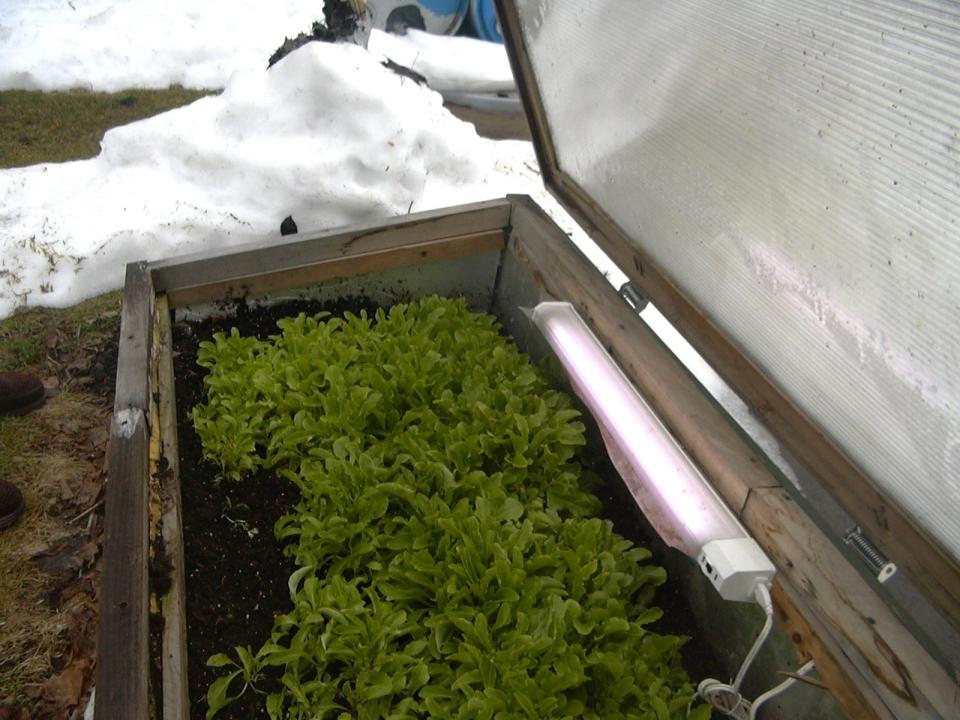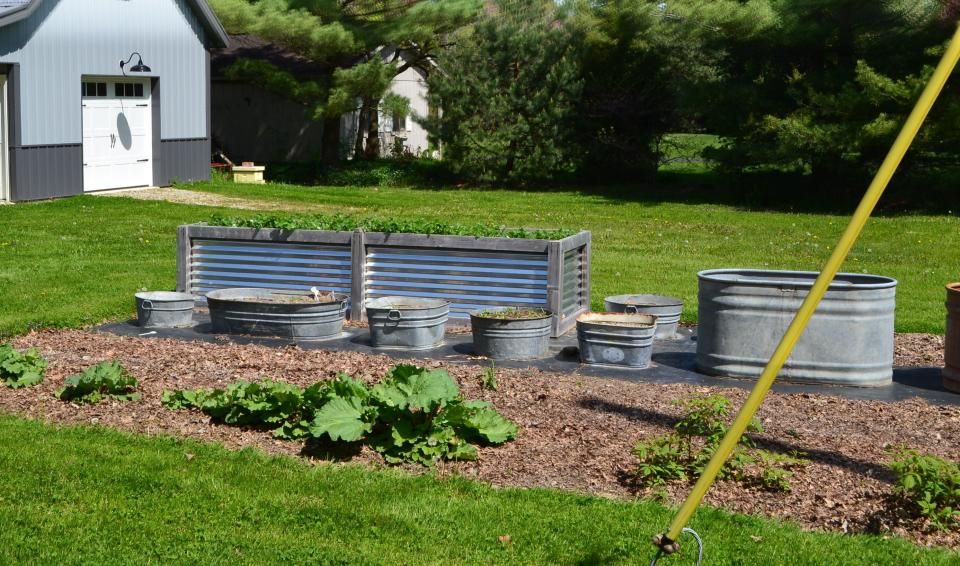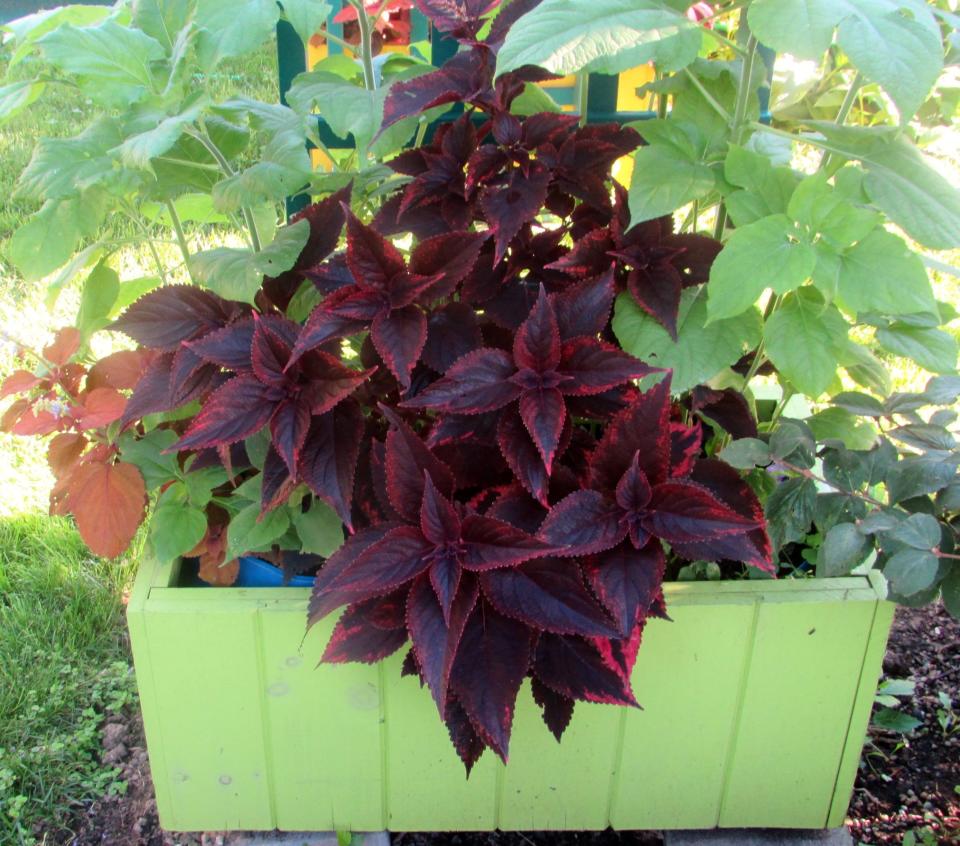A Stroll Through the Garden: The benefits of raised garden beds
While at the pool this past week, I had a friend who asked me about getting started with some new raised beds. He has reached the point where he is working with a number of raised beds. He talked to me about this last year, asking “What kind of success have I had with raised bed gardening?”
This basic initial idea of how you are planning to garden should be an early season decision that can set your gardening year. These decisions require time and money to answer. But at the end of the year the potential behind having a bumper crop of vegetables is substantial.
My friend, who asked about my experience with raised beds, has a daughter who had some success with growing her garden with raised beds again this past year. Initially I came up with some quick benefits - easier on a gardener’s back, looks nicer later in the season, fewer pest invasions, improved drainage, fewer weeds, better soil temperatures and earlier planting time, can be either a permanent or temporary garden, and less of a chance for soil contamination.
In conclusion, I have recommended raised bed gardens for most of the vegetable lovers I know for many of the reasons I have mentioned.

Another friend from a few years ago said to me that he really did not like the offerings of vegetables that he would usually see on the store shelves. I did agree with him, to a point. What I recalled was a World Health Organization study that pointed out there was a significant difference between organically-raised vegetables and fruit verses conventional raised produce.
If you are looking at an organically-raised vegetable, you will have a wide source of nutrients as compared to a conventionally-raised produce. In other words, the conventionally-raised produce probably did not have the trace nutrients we all need in our diets. That means that a wise man may look at alternatives to going to the market if you can’t find organically-raised produce you want to buy.
Among the raised beds are keyhole gardens, straw bale gardens, and Hügelkultur gardening. All of these have their own benefits and challenges.

When we were installing some raised beds a few years ago at the North End Community Improvement Collaborative in Mansfield, we all noted many benefits the first few years that we were there. The beds had excellent garden soil, organic matter and soil amendments. The soil remained light and aerated because no one walked on the soil.
The soil was not compacted and did not need tilling. While we worked in that parking lot, we had the freedom of adding the soil, rich organic material, compost and soil additives that would produce the food that we would want. Keep in mind that the soil settles and plants will deplete the nutrients, which means that you will be adding fresh soil to the raised beds regularly.
Because the soil has been enhanced and enriched in nutrients, plant density can be increased; you will have a higher plant-to-soil ratio. Since you don’t walk in beds, you don’t need a walk between rows. The challenge is that you need to lean over the beds in order to care for the plants, which means that the length of your arms will determine how well you can care for the plants. More vegetable plants will also mean more shade on the soil and fewer weeds.

When you pick up most seed packets, you will see that the plant you are putting in your raised bed does best in well-drained soil. Raised beds are generally elevated, which means that the soil drains more rapidly than level beds. Most raised beds you will find rich, well-draining medium, unlike our heavy clay soil here in Ohio where we range from some clay to needing a pick, spud bar and a stick of dynamite to turn the soil. Keep in mind, your raised bed will probably need more watering than your ground-level bed unless you have a partial liner like I recommend.
Moles, voles and chipmunks are controlled better with raised beds. These soil dwellers have a harder time getting through the wood and the chicken wire that line the bottom of the bed. If you make a wood frame to fit the hole in the bottom of the liner with the chicken wire in the middle, you can then secure the plastic liner to the edge of the frame. By doing this you can have a small reserve for water at the bottom of the bed and provide water for the roots as needed.

Rather than spraying each plant individually for pests, you can spray around the bed and control certain insects. With the raised bed you can install bird netting or insect netting over the top of the beds or other exclusion fabrics for insects. Overall, pest control is the easiest with raised beds.

This year, as you are planning your own gardens, you really need to consider raised beds, which is what my friends were doing as we talked in the pool. As you stroll through your gardens and see some challenges, let me know. I shall help as much as I can if you drop me a line at ericlarson546@yahoo.com. Soon I shall be back at ohiohealthyfoodcooperative.org.
Thank you for participating in our column.
Eric Larson of Jeromesville is a veteran landscaper and gardening enthusiast and a founding board member of the Ohio Chapter of Association of Professional Landscape Designers.
This article originally appeared on Mansfield News Journal: Consider using raised beds in your garden this year

